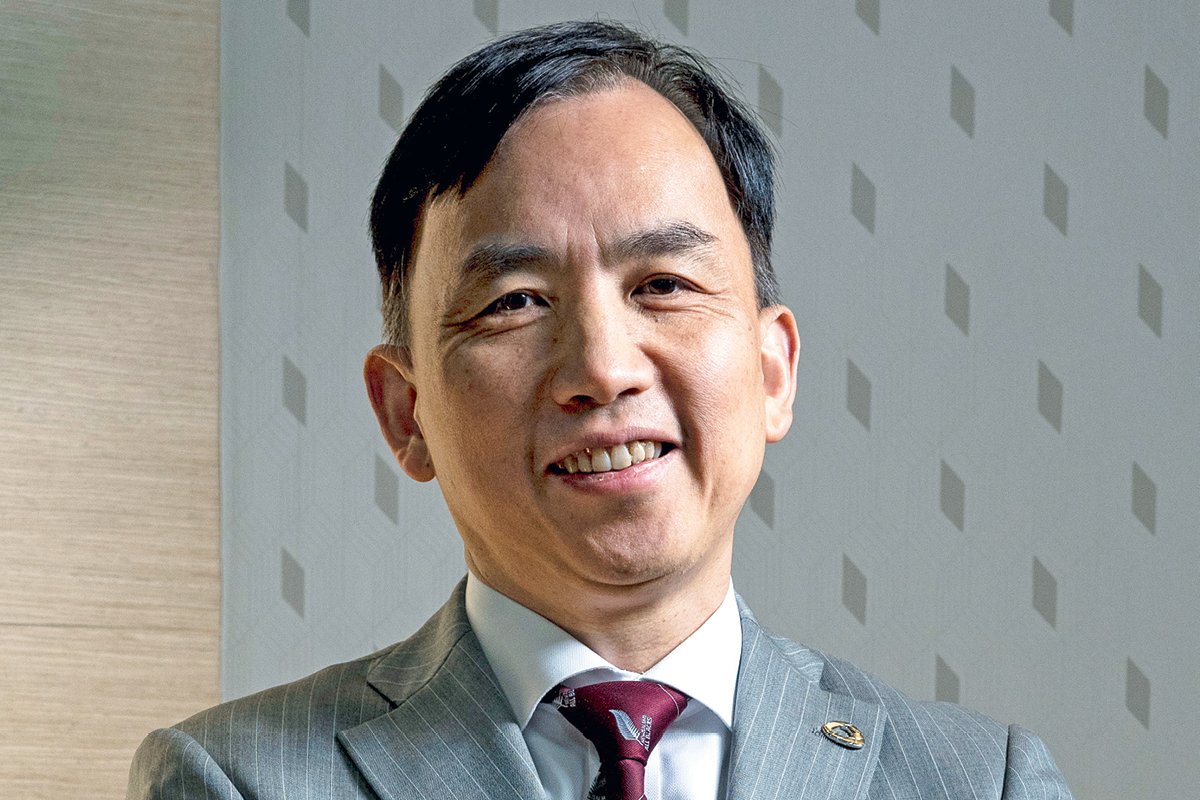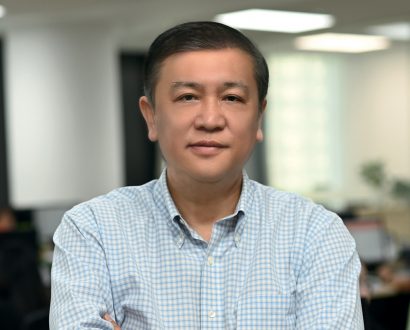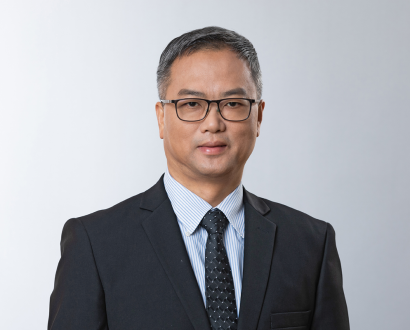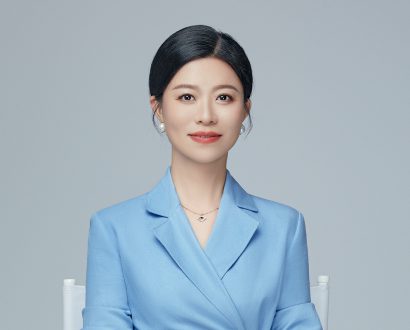Xin is now in a position where he can leverage innovation opportunities with Amcor products and in the markets they feature in. And he plans to do just that. After graduating with a bachelor’s degree in chemical engineering in China, Xin migrated to New Zealand, where he completed a master’s degree.
Joining dairy cooperative powerhouse Fonterra, Xin spent eight years with the company in Timaru, in the South Island, working his way up in different roles. In 2001, Xin was approached by Tetra Pak in China, where he returned and started what would become a 17-year journey with the firm.
“In my last two years with Tetra Pak, I was in charge of Industry 4.0, which handled smart packaging and processing,” Xin recalls. “It’s an exciting field.” With a wealth of experience behind him, Xin joined Amcor China in 2018 as the President of Greater China.
“Amcor China is very different from Fonterra and Tetra Pak, which both have dominating market shares,” Xin explains. “When I was at Tetra Pak, we had such a high market share that there was nowhere to grow. I knew coming to Amcor would be a different game with many challenges, so I’ve found it very exciting.”
Cultural shift
Amcor China is a subsidiary of global packaging giant Amcor. With 250 plants in more than 40 countries worldwide, Amcor employs a staff of 50,000 and makes US$13 billion in sales annually.
The company is a world leader in manufacturing responsible packaging for food, beverage, pharmaceutical, medical and personal care products. It partners with key companies around the world to protect their products.
While Amcor is the largest consumer packaging company in the world, in China its market share is less than 10%. Here, there are tens of thousands of competitors operating in a smaller market.
Over the past 20 years, Amcor China has grown largely through investment. “All the 13 plants in China have come through M&A,” Xin says. “There is not one plant that has been built by Amcor. All growth has come from acquisition.”
When you acquire a company, Xin says, you also gain its culture. “We have many different cultures in Amcor China,” he explains.
“So the challenge – and the fun part – is melting the cultures together and then embracing them into the global Amcor culture. By doing that, we can form one new Amcor culture. “We’re in the stage of doing this now, and it’s an extremely exciting and interesting process.”
A shared vision
Creating a unified culture has been imperative for Xin moving forward. “We’ve established one common goal for our 13 plants – it consists of four visions,” he explains.
“The first vision is sustainable and profitable growth – our goal is to double our business from 2018 to 2025. In the past two years, we’ve grown the business by 30%, so we’re on our way to achieving that.
“Second, we want to be the number one brand and preferred supplier. Although we’re the largest player in the market, we’re not the most recognisable. Many of our acquired local plants have retained their original brand name, but our goal is to establish one Amcor brand in China and we’re making good progress towards that.
“Third, our vision is to also be employer of choice with the highest safety standard. And last but not least, we want to become the environmental role model in China.”
Operational excellence
Worldwide, the Amcor group has 250 plants, which offer Amcor China opportunities to learn global best practice and performance. This allows the region to improve quickly, lower costs and deliver higher quality products.
When asked what sets Amcor China apart from other competitors in the region, Xin answers thoughtfully: “It’s our size – we’re bigger and therefore more powerful in terms of procurement and systematic strength. Applying this lowers our overall production costs and enhances our operational excellence.”
Packaging is becoming the new medium.
Xin believes that competition offers opportunity to consolidate and grow. “Consolidation for high efficiency and productivity is clearly the trend for the flexible packaging industry; however, this isn’t yet prevalent in China,” he says.
“This gives tremendous opportunities. As the number one player in the world, Amcor is in a unique position to make this happen.”
Packed with passion
Many executives have a passion for their industry that most outside it don’t understand. And often the reasons they connect with it are the simplest. For Xin, why he loves the packaging industry is clear.
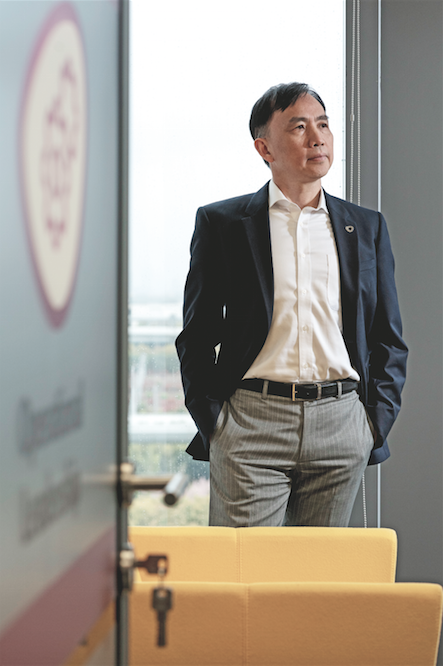
“Packaging protects what’s inside,” he says. “Today, when so many products are being transported globally, protection is imperative.
“Packaging can also increase the value of the goods it contains. It makes the product look more attractive and can appeal to consumers’ emotions. Although the product strategy may come through marketing and sales, the packaging is how the message is delivered.”
With the rise in ecommerce, Xin also advocates for the role that packaging plays in this growing sales channel.
“Packaging is becoming the new medium. You can’t put messages on products such as cheese or milk, but you can put mass messaging on the packaging,” he points out.
“The packaging provides a way for the manufacturer to communicate with consumers. It becomes the intermediary.
“Packaging plays a bigger role than most consumers understand. And there’s more scope for us to be involved and contribute to the sales and marketing process.”
Flexible leadership
When discussing his leadership style, Xin laughs. “I’m an engineer, so I like doing things in a systematic way with good planning,” he says. “My first priority is to get things under control by setting up systems and processes following compliance governance. This is extremely important for a multinational company working in China.
“But, having said that, I still need to be flexible. China is a dynamic market that changes quickly and often. We need to be able to make quick decisions and be dynamic. Being flexible has been a skill I’ve had to develop.”
Hearing feedback from the frontline firsthand and being part of the team is also a unique and important feature of Xin’s management style. “I hate bureaucracy,” he admits.
“I like talking to the teams in the plants, from the frontline sales, customer service and everywhere throughout the organisation. That’s where I hear the voice of the company.
“Our employees are excited by the growth potential for Amcor China, as this brings hope and creates incentive. As the company grows, it creates a larger platform for career opportunities.”
Future innovation
How does a company like Amcor embrace technology changes? “Due to our scale, we have one of the best R&D centres in the United States,” Xin says.
“We often send people to the US and Europe to learn and then apply this knowledge in our production techniques. We also have our own R&D centre in China for frontline understanding and developing local solutions.”
Across Amcor China’s 13 plants, the manufacturing operation is currently at a relatively low level of automation. This offers the opportunity to upgrade and introduce new technology and innovations. “We believe the second half of digitalisation is just beginning,” Xin says.
“Amcor is in the unique position to apply digital solutions to connect consumers and the products they purchase.”
Strength in partnerships
In 2019, Amcor China, along with six well-known brands, aligned with JD.com, China’s biggest online retailer, to form the China E-commerce & Logistics Packaging Standard Alliance.
China is the largest ecommerce market in the world, worth US$1.9 trillion in 2019, and is growing at about 18% per annum. The alliance looks to leverage opportunities and overcome challenges of China’s booming ecommerce channel.
We believe the second half of digitalisation is just beginning.
Amcor is taking a lead role in providing innovative and sustainable packaging solutions to support ecommerce in China. In addition, more partnership opportunities exist outside this channel, which Xin is excited about.
“Amcor makes more than 10,000 different kinds of packaging,” he says. “This offers opportunity to collaborate with partners in everything from packaging machines, ink, glue and different raw materials and advertising. We’re not a closed company, but rather a large platform that welcomes partners working with us to serve our customers together.”
Sustainability commitment
In 2018, Amcor was the first packaging company to make the global pledge to develop all of its packaging to be recyclable or reusable by 2025. The firm made a US$50 million investment in 2019 to accelerate its sustainability agenda and advance its worldwide impact.
For Amcor China, the challenge is harder than in other Amcor regions, but that hasn’t lessened Xin’s commitment to the pledge. “Globally, about 60% of Amcor products are recyclable; however, in China, it is only 38%. So we have a large gap,” he admits.
“In the next five years, we need to work closely with our partners, customers and the Chinese government to increase the ratio to 100%.
“At Amcor China, we have the opportunity to always deliver more. We’re in the best position to consolidate, deliver growth and lead sustainability in China. Our goal is to be the leading packaging company in China.” And Amcor China is on its way there.
Proudly supported by:
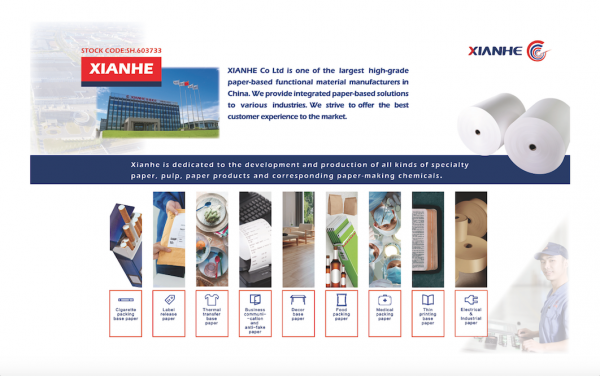
Xianhe
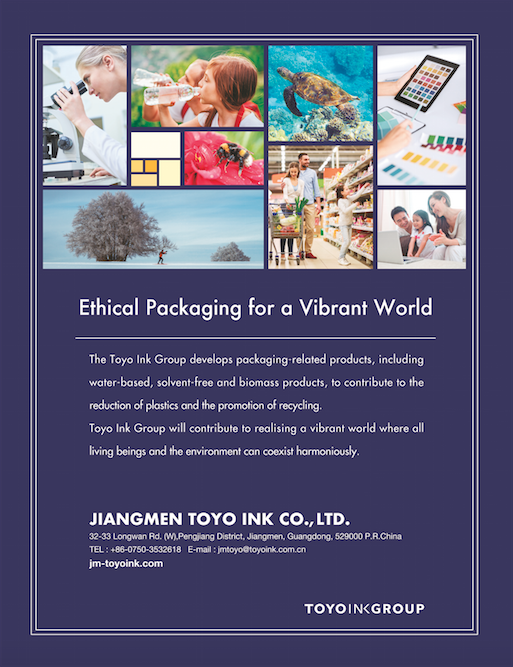
摄影:Raul Ariano

